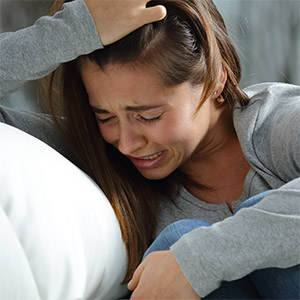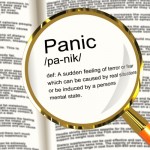Anxiety Therapy Can Give Your Teen Better Ways of Coping with Worry


Anxiety is persistent worry or fear. It makes a person miserable. When uncontrolled it often causes depression and despair. Some symptoms of anxiety include nervousness, nail biting, stomachaches, overanalyzing, trouble sleeping, clinginess, avoidance, and pessimism. When an adolescent experiences severe anxiety, it can be devastating. Teen anxiety therapy can help.
Is Your Teen Dealing with Stress and Anxiety but Doesn’t Know How to Cope?
- Does your teen often feel worried, afraid or stressed?
- Is your teen struggling in school because of anxiety?
- Does your adolescent have fears that just won’t go away?
- Do they avoid people, places, or activities because they feel nervous?
- Has your teen ever suddenly panicked without an obvious cause?
- Is your teen always fearing the worst (catastophizing)?
- Does your teen have ritualistic behavior like hand-washing?
Anxiety feels crippling and miserable for adolescents, but with compassionate counseling, there is hope for a more peaceful, enjoyable life.

What Types of Anxiety Disorders Do Teenagers Have?
| Social Anxiety “Social Phobia” | Extreme levels of self-consciousness. Excessive worry about being judged by others. Unrealistic fear of committing a social blunder. Efforts are made to avoid places where peers might be present. Teens with Social Anxiety often hate going to school. |
| Generalized Anxiety | Constant worry. The focus of the worry changes, but worry is always present. Physical symptoms often include: insomnia, nervousness, muscle tension. Teenagers with Generalized Anxiety chronically worry. |
| Simple Phobia “Specific Fear” | An intense fear of one thing such as spiders, small spaces, or being attacked. The fear is so strong that it gets in the way of daily activities. One of the most intense simple phobias is emetophobia (fear of vomiting). |
| Obsessive-Compulsive Disorder “OCD” | Unwelcome thoughts that cannot be controlled (“obsessions”). “Compulsions” are then done to try and stop the unwelcome thoughts. Examples of compulsions are repeatedly checking that the door is locked, counting, or washing hands. OCD in teens includes mental and physical compulsions. |
| Panic Disorder | Anxiety attacks. Sudden, intense panic that usually ranges from 30 seconds to 10 minutes. It is so scary that people often think they are dying. It can feel like a heart attack, choking, difficulty breathing, dizziness, and sometimes causes vomiting. For some people, the fear of panicking in public leads them to avoid going places (agoraphobia). Teenagers frequently have panic attacks triggered by something at school. |
If you are a parent watching your teen suffer with anxiety, you likely feel helpless, sad, and at times frustrated. Let us help you help your teen. In this situation, let’s work together to provide tools for your family and your teenager that work for anxiety.
How Common is Anxiety in Teens?
Firstly, your teenager is not alone in their anxiety. According to the National Institute of Health, more than one in three adolescent females and more than one in four adolescent males have an anxiety disorder during adolescence. Importantly, that means when your child walks around their school campus, he or she sees multiple other students who also suffer with significant feelings of nervousness and worry.
How Does Therapy Help for Teen Anxiety?
The good news about anxiety being a common problem is that there is a lot of research on how to help it. In fact, the therapists at Teen Therapy OC have training in numerous anxiety-reducing tools including Cognitive Behavioral Therapy, Dialectical Behavioral Therapy, Exposure Therapy, and Mindfulness. Christian-based counseling is also effective for anxiety for those who want to incorporate a spiritual element in their counseling.
Additionally, many teens respond well to peer support groups when coping with anxiety. Group therapy is an excellent tool that helps your teen feel less stigmatized while learning anxiety coping skills.
Some Common Questions about Teen Anxiety Therapy:
–My teen’s anxiety seems worse than most. How will therapy help?
Oftentimes the methods people use for coping with anxiety focus on whatever provides immediate relief. Many teenagers and parents learn in counseling that it is better to carefully face fears, learn to tolerate uncomfortable emotions, and view anxiety as an overprotective “friend.” Your therapist’s role is to coach you and your teenager on new ways to think about anxiety so that it no longer controls your teen’s thoughts, feelings, and actions.
-How will I know if my teenager needs medication?
Teen Therapy OC therapists believe therapy is a collaborative process between your child, you, and the therapist. For instance, we are all one team trying to efficiently work through your adolescent’s anxiety. Sometimes it makes sense to have a psychiatrist on that team. When that is the case, the therapist will let you know it is time for a discussion about whether to include a psychiatrist (a prescribing MD or DO) in the conversation.
-What is my role in helping my teen with anxiety?
You have a huge role in helping your teen cope with anxiety. There are steps you as a parent learn to take at home to support your teen’s new way of thinking about anxiety. Teen Therapy OC therapists collaborate with you in this learning journey.
Anxiety can feel emotionally crippling to your teen, but there is hope. Call 949-394-0607.


